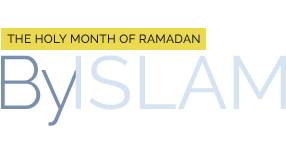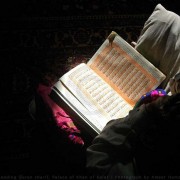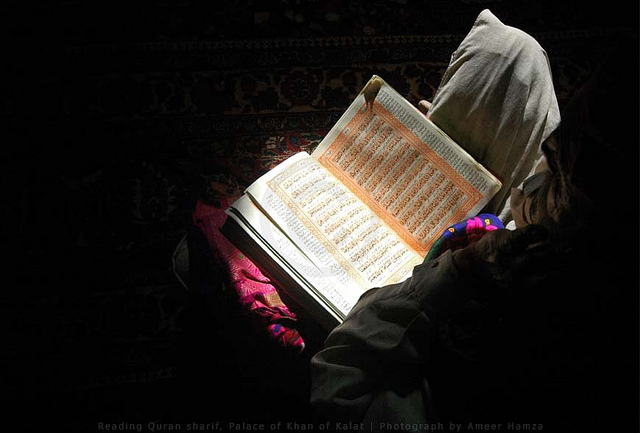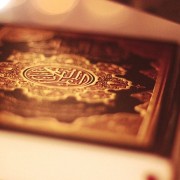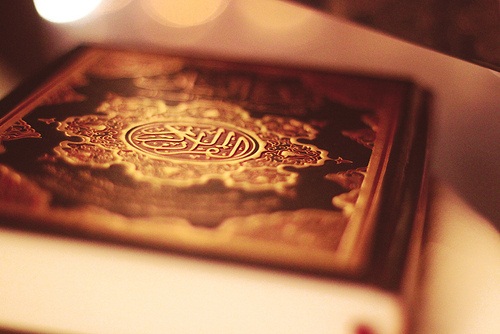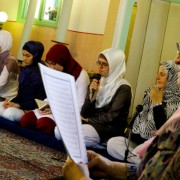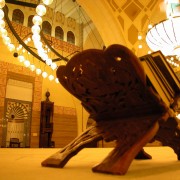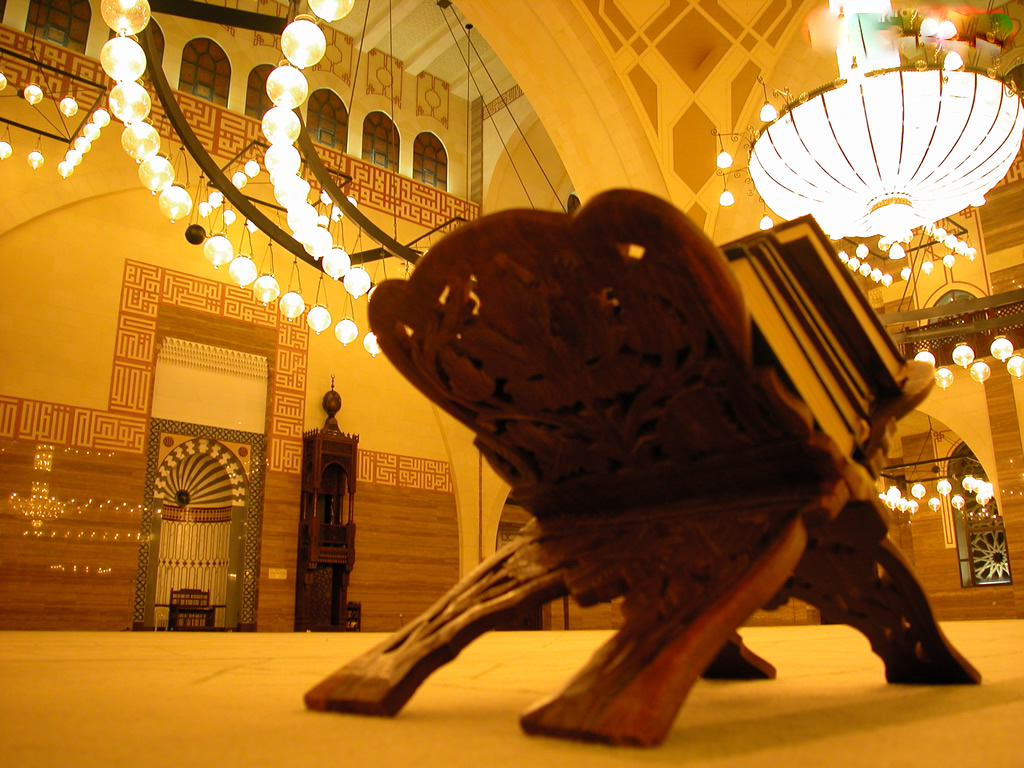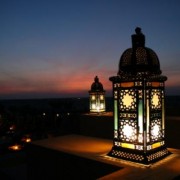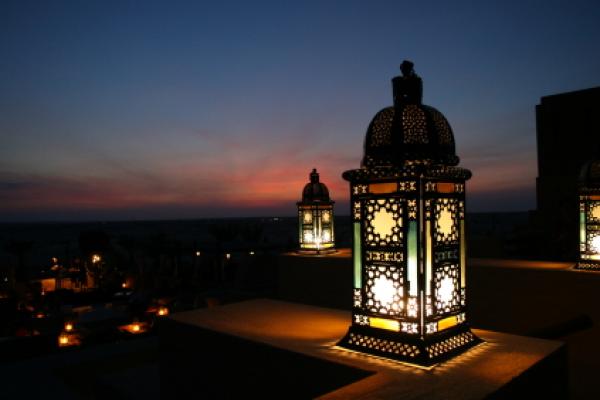The effects of reciting the Quran-2
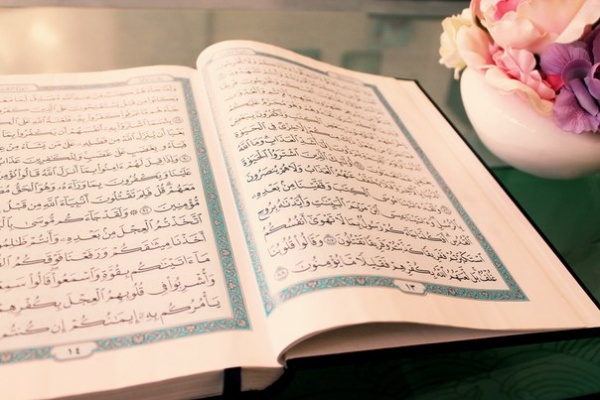 In the previous post we mentioned some of the effects of reciting the holy Quran. Now we want to continue that.
In the previous post we mentioned some of the effects of reciting the holy Quran. Now we want to continue that.
The holy Quran is a very good companion. Imam Sajjad peace be upon him said:
If all the people between east and west ( meaning: all the people of the world) die, and just the holy Quran is with me, I do not feel frightened.
If we do not consider the Quran as a companion and leave it alone, as the holy Quran said, the holy Prophet of Islam will complain from us on the day of Judgment.
It is interesting that even looking at the verses of the Quran or listening to the recitation of the Quran without reciting it, is considered as a worship and has rewards.
Imam Sadiq peace be upon him said: Reciting the holy Quran with looking at the verses, enlightens the eyes and decreases the punishment of the reciter’s parents even though they both were infidels.
Nowadays a good custom is prevalent especially in the Islamic countries and that is the memorization of the holy Quran. The holy Prophet of Islam is narrated to have said:
Allah does not punish the heart that includes the Quran.
Imam Sadiq peace be upon him said: When a young believer recites the holy Quran, the Quran gets mixed with the meat and blood of him/her and Allah will make him/her to be accompanied by the great honorable angels who are the writers and carriers of the Quran and the Quran will be his/her guardian on the Day of Judgment.
The holy Quran is a book which enlightens us. According to Imam Ali peace be upon him, the companion of the Quran when he/she wants to go away(after reciting it) is effected by the Quran increasingly or decreasingly, the guidance got increased or the blindness (of the heart) got decreased.
According to the Narrations, one of the responsibilities of the father for his child is to teach him/her the holy Quran.
Sometime our hearts get rusted, the holy Prophet of Islam said: The hearts get rusted just like the iron gets rusted, the thing that polishes them is the recitation of the Quran.
There are some recommendations from the infallibles which show that every individual chapter of the holy Quran has specific results and effects. For more information refer to the books of the exegesis of the holy Quran in the beginning part of every chapter’s description.
But it is important to be noted that it is true that reciting the holy Quran it so good even when it is done without pondering, but definitely the complete effects of them are achieved when it is done with pondering upon its verses and at the same time being away from committing the sins which is a great barrier for the complete Quranic effects.
There is a Narration from Imam Sadiq peace be upon him in this regard, he said: There are many reciters of the Quran that they are cursed by it. When he was asked about these people, the Imam replied:
Those who recite the Quran but they do not act according to that. (They do not implement the Quran in their lives).
It is like some of the companions of the Prophet of Islam that they were with him for some years but they did not act according to what they have learned from him.
The holy Quran is a cure for our spiritual diseases. The holy Quran said in chapter yunos verse 57:
يَا أَيُّهَا النَّاسُ قَدْ جَاءتْكُم مَّوْعِظَةٌ مِّن رَّبِّكُمْ وَشِفَاء لِّمَا فِي الصُّدُورِ وَهُدًى وَرَحْمَةٌ لِّلْمُؤْمِنِينَ
“People, an admonition has now come to you from your lord, and a healing for what is in the chests, a guide and a mercy to believers.”
Imam Ali peace be upon him in one of his sermons in the book of Nahj-Albalaghah, called Khutbah Al-Hammah, sermon number 184 or 192 (due to difference in the version of the narrations of this book) mentioned the features of the pious and it is so interesting and I recommend our dear brothers and sisters to read this very beautiful sermon and try to implement these features little by little in their lives. One of the features of the pious is that in night they recite the verses of the holy Quran and they try to cure their (spiritual) diseases according to the Quran. When they reach to the hopeful verses, they become hopeful in a way that it is as they are seeing by their eyes the blessings mentioned in the verse and when they reach to the verses in which there is fear, they listen to it carefully in a way as the whimper of the Hell is heard by them.
The recitation of holy Quran enlightens the house. The holy Prophet of Islam said:
Enlighten your house with the recitation of the Quran and do not make your houses as cemeteries just like the people of Christianity and Judaism did so, they pray in the churches and synagogues and they make their houses off from it. The blessings get increased in the house in which the Quran is recited so much and the inhabitants of that house get in the vastness (of sustenance).
————
Source: howzah.net
